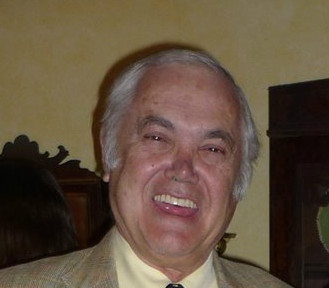Angus Macbeth died in his sleep on January 22. With his passing, the environmental bar lost a founding father, an extraordinary advocate who helped establish the Natural Resources Defense Council, built and led the environmental practice in the U.S. Department of Justice (DOJ), and grounded the environmental practice group at Sidley Austin LLP.
Along with many others, I lost a friend and mentor—a man who shaped our collective approach to the law not through lectures or pronouncements, but by brilliant example, always finding the best analytical path, the right words to sum up the central theme, the most convincing advocacy. Like so many in the government, in private practice, and in the NGO community, we were privileged to learn from the man who was always, quite simply, the smartest lawyer in the room.
Angus was central to ELI as well, having served on the ELI board from 2006-2011. He was an active supporter and member of the Institute’s Campaign Leadership Committee, which has been helping ELI thrive through its Campaign for the ELI Fund, and was a member of the ELI Leadership Council.
 |
I met Angus’ handwriting before I met Angus. When I was a staff attorney at the U.S. Environmental Protection Agency and Angus was Deputy Assistant Attorney General, he reviewed every environmental brief that the United States filed. Our drafts would go to DOJ and come back slashed with broad red strokes, the cross of the letter “t” floating somewhere off to the right of the vertical, the handwriting that was at first hard to decipher, but always conveying just the right direction and advice.
A few years later, Angus plucked me from the government and into private practice with the words, “Oh, come on, Gutter—we’ll have fun.” That was 32 years ago. As usual, Angus was right.
Of equal or even greater importance than his prodigious legal talent, Angus was a genuinely decent person—an old-world gentleman’s lawyer. He could excoriate an opponent with words as sharp as a honed blade, but would never speak ill of another lawyer. He had a tireless work ethic and a core belief that every client deserved the very best that he could deliver, and he revered the practice of law. I remember Angus and Steve Ramsey dragging into the office after the last all-night session negotiating a major civil consent decree, shirts untucked, reeking of cigar smoke, voices hoarse—and loving the moment.
Angus’ wisdom was grounded in his love of history and what it could teach us today. Of all his professional accomplishments, the one that made him most proud had nothing to do with environmental law. As Special Counsel for the Commission on Wartime Relocation and Internment of Civilians, Angus authored Personal Justice Denied, a compelling report that laid bare the terrible history of the internment of Japanese-American citizens during World War II, paving the path for a governmental apology and reparations for the victims. That work put Angus into the stream of history and it fed his central passion: exposing a wrong and working to right it.
And yes, for 32 years, Angus and I did have fun. Angus delighted in finding the absurd in everyday life and he lived large. He had an Anglo sense of humor that seemed to spring from Fawlty Towers, a loud laugh, and a love of fine food and great wine. Heading out with his New York Times tucked under the arm of his ragged Harris Tweed, Angus was a last true believer in “the long lunch.”
With extraordinary talent and a generous spirit, Angus shaped environmental law, shined a light on a dark chapter in U.S. history, and elevated countless lawyers by his mentoring and example. It is a marvelous legacy of a great lawyer and a wonderful man.
